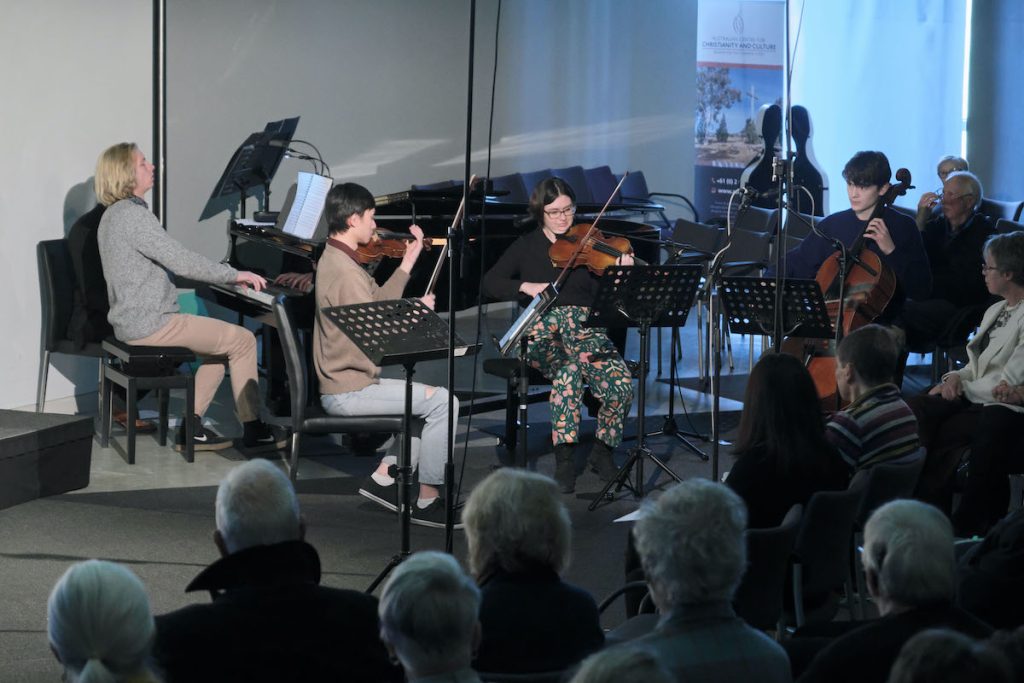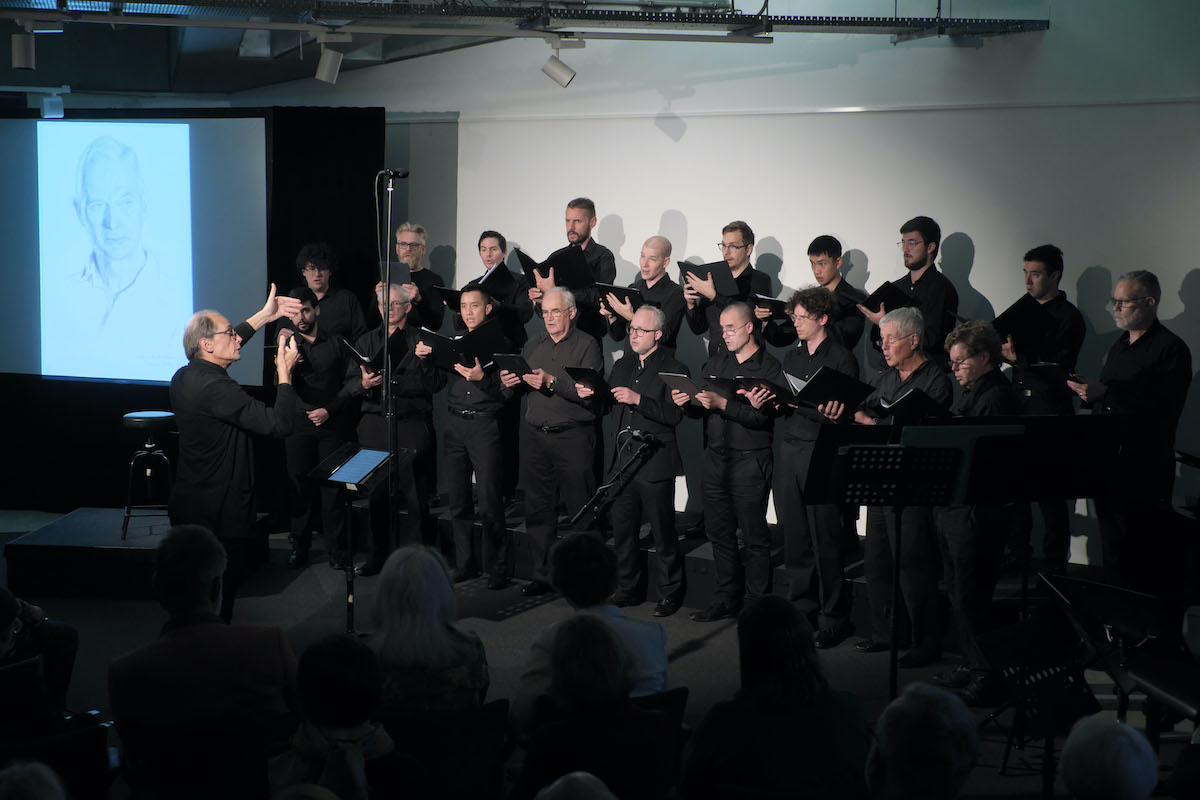Dunera Mass provides a rare and welcome opportunity to hear music rescued fortuitously from the debris of war.
Rarely do we have an opportunity to hear music that has been rescued fortuitously from the debris of war — in the case of the Dunera Mass concert at the Canberra International Music Festival on Saturday afternoon, from manuscripts cherished through the decades by one of the original performers, Oswald von Wolkenstein.
The standing ovation at the end of the event showed how welcome that opportunity was.
The concert was as much an explanation of the historical past as a presentation of music written in the early 1940s aboard the transport ship Dunera and in internment camps in NSW and Victoria.
Nicole Forsyth, professional violist and lecturer in Historic Performance and Strings at the Sydney Conservatorium, provided the unifying thread for the event, first as she narrated the story of the “Dunera boys” and the recovery of the music, and later when she put her microphone aside and took up her viola to join the festival’s artistic director, Roland Peelman (piano), and members of the Luminescence Chamber Singers to perform Boaz Bischofswerder’s Phantasia Judaica: a yearning, melancholy work whose Jewish liturgical character is evident throughout.
It was, however, Max-Peter Meyer’s works that made up the substance of the afternoon.
Meyer was no “boy”: a Catholic convert, he was born to a Jewish family in Munich in 1892, and was in his mid-40s when he was sent to Australia aboard the Dunera with around 2,500 mostly young German internees.
The voyage has become notorious. The crew apparently treated their passengers properly but the military escort was made up of thugs and thieves. Meyer devoted his energies aboard to writing music and organising performances, believing that music and art would relieve the oppressiveness of the internees’ circumstances and revive a sense of “home” – even if in the interim that would be an internment camp at Hay or Tatura. “Ossie” Wolkenstein kept the musical scores and in 2002 passed them to Nicole’s father, music education academic Dr James Forsyth.

The concert began with the Allego con brio first movement of Meyer’s Piano Quartet in C major, vigorously performed by the Meyer Quartet (David Cavenagh, piano; James Monro, cello; Pippa Newman, viola; and Brad Tham, violin). The second movement did not follow immediately. When the time came, it was preceded by soprano Rachel Mink’s brief but sweet rendition of the traditional lullaby Der Mond ist aufgegangen (The Moon has Risen), from which Meyer developed the quartet’s slow second movement.
This is a warmly felt, immediately engaging work, complex and convincing, and balanced so that no one instrument dominates its fellows. Perhaps it was thought that playing both movements consecutively would give the quartet too much prominence, and so unbalance the program; but there is good reason to want to hear this appealing work in full. Two more movements exist, and it would be rewarding to have the quartet complete.
Meyer used two psalms to write his De Profundis, a setting that displays the composer’s command of choral writing. The version used on Saturday was that arranged for soprani, altos, tenors and basses. Dan Walker directed the Oriana Chorale, with committed singing by bass Lucas Allerton and tenor David Hutchison in the important solo parts, and Peelman providing piano accompaniment. This is an appealing and substantial work that ends affirmatively, with the “amens” ringing out from the choir. There apparently exists a version for larger instrumental forces: it would be good to hear this performed.
The Dunera Mass in D minor that gave the concert its title is a relatively brief work, rich in harmony, that follows the traditional format of the Latin mass, from Kyrie to Agnus Die. Under Peelman’s direction, the men of the Oriana Chorale and Luminescence sang the a cappella version for male voices that was written and performed aboard the ship in 1940. It too shows Meyer’s skill as a writer for choirs: a strong and effective work that was designed, in the composer’s words, to offer “relief, confidence and edification”. A second version for soprano, alto, tenor and bass, with organ accompaniment, was performed in the Tatura camp in 1941.
Choristers, soloists and instrumentalists took the opportunity to show the quality of their music-making. This was a rewarding concert, well performed and satisfying, that helps to open a new page in Australia’s musical story. We should hope to see renewed interest in Meyer’s accomplished oeuvre.
Feature image: Dunera Mass, Canberra International Music Festival 2023. Photo © Peter Hislop
This review was originally written and published by PETER FULLER from LIMELIGHT on 06 May 2023.
